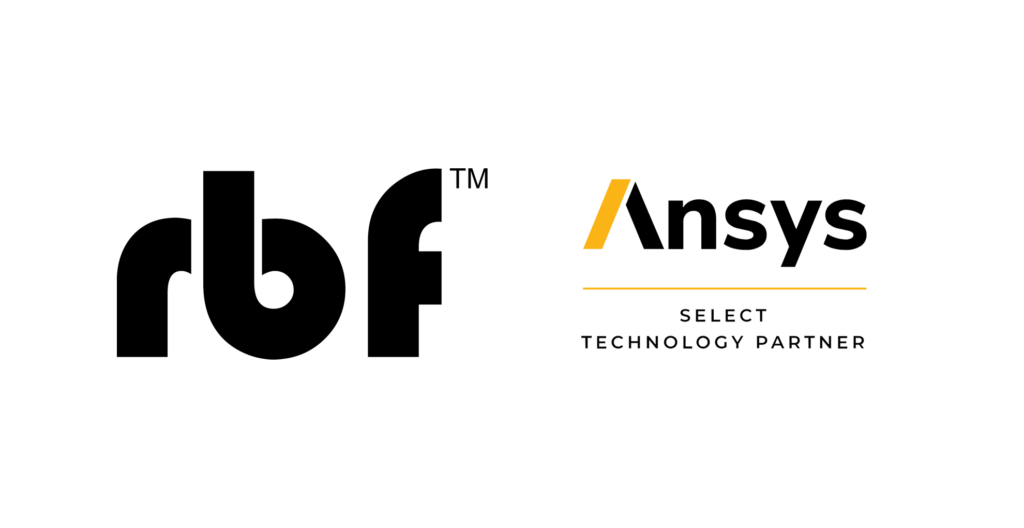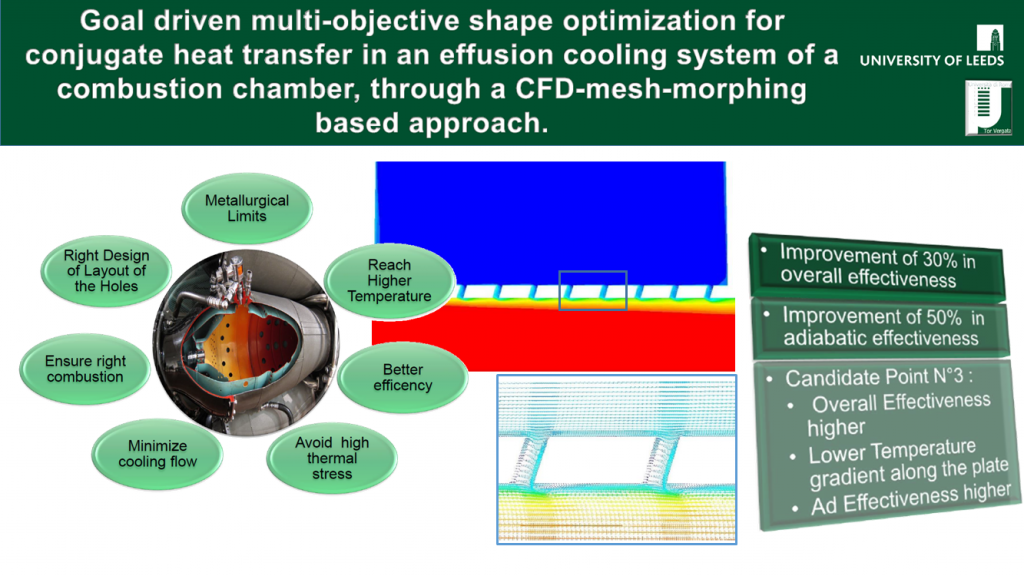In his thesis “Goal Driven Multi-Objective Shape Optimization for Conjugate Heat Transfer in an Effusion Cooling System of a Combustion Chamber, through a CFD-Mesh-Morphing-Based Approach” Walter Savastano conducted numerical investigations to optimize the effectiveness of full coverage effusion cooling through computational fluid dynamics (CFD). The study examined the impact of hole density and injection angle on cooling performance, validated against experimental data. The research focused on a baseline case with a perforated wall subjected to a duct flow. Three geometrical parameters (hole inclination, X and Y pitch) were explored using ANSYS Workbench and RBF Morph software.
The results revealed that inclination and Y pitch had a greater influence on cooling performances. An optimized configuration was proposed, demonstrating significant improvements in effectiveness, adiabatic effectiveness, and reduced thermal stresses on the plate. Additionally, the new geometry allowed for lower mass flow rates without compromising effectiveness.
You can read the presentation and the full thesis.



